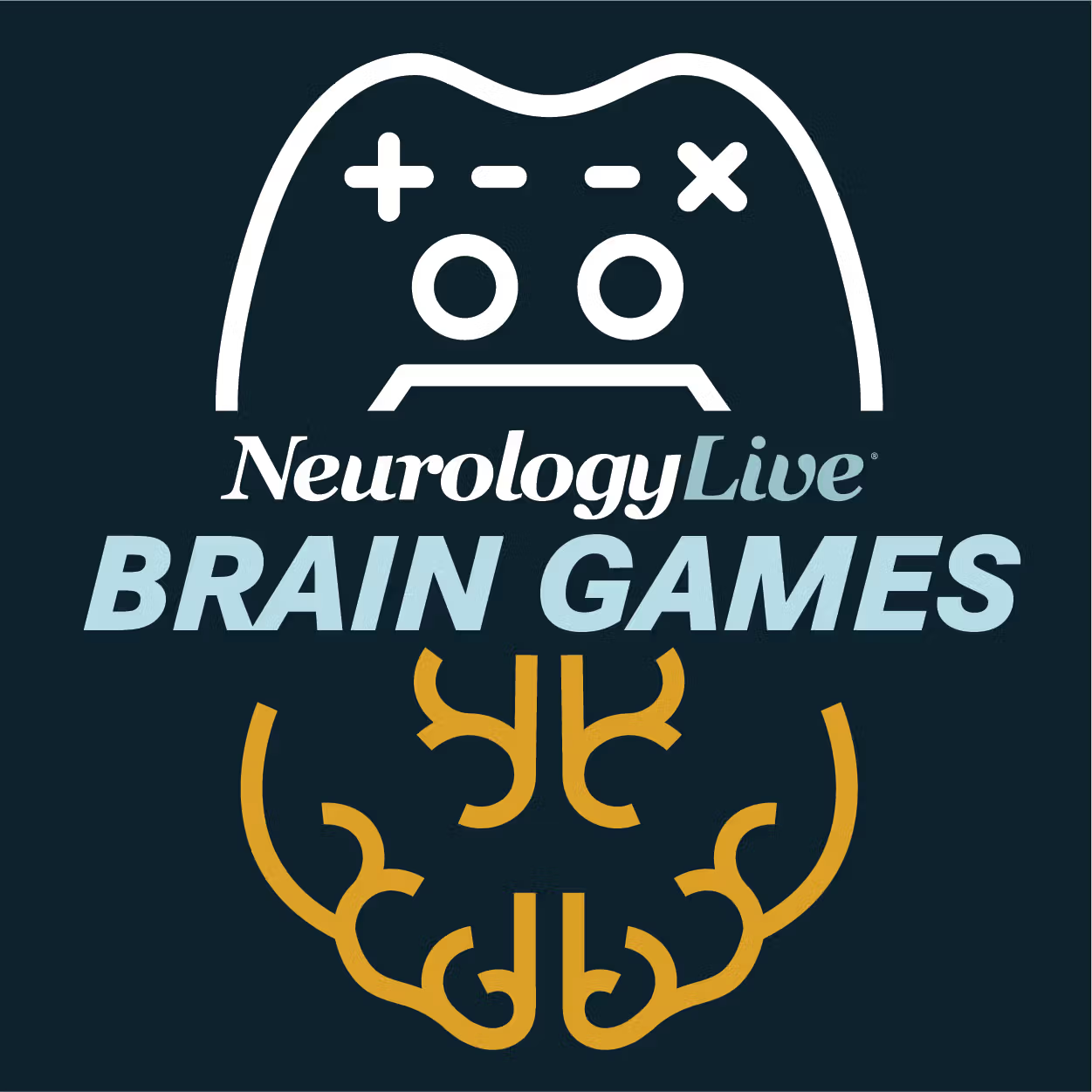Commentary
Article
Advocating for Huntington Disease: Importance of HD Awareness Day
Author(s):
Victor Sung, MD, PhD, director of the UAB Huntington’s Disease Clinic, provided perspective on some of the advances and areas of unmet on Huntington Disease Awareness Day.
Victor Sung, MD, PhD

Huntington disease (HD) is a rare autosomal dominant neurodegenerative genetic disorder that has an average onset between 30 and 50 years of age. This disorder, which impacts approximately 7 in 100,000 persons, is caused by a mutation in the Huntington gene (HTT) located on chromosome 4. Research has shown that neuronal degeneration within the basal ganglia, an affected part of HD, is consistent with the symptoms observed in this patient population, which include memory impairment, slurred speech, chorea, weight loss, and personality changes.
Although there have been no approved disease-modifying therapies, drug development has ramped up in recent years, with 8 different drug interventions currently in phase 3 trials. Four of these medications (dextromethorphan/quinidine, valbenazine, deutetrabenazine, and metformin) are FDA approved for alternative indications while 4 others (Cellavita HD, pridopidine, tominersen, and SAGE-718) have not yet been marketed and are seeking their first approval.
Huntington Disease Awareness Day, observed on May 15th each year, aims to raise awareness about HD. The day provides a platform for individuals and families affected by HD to connect with one another, share experiences, and offer support. In addition, advocacy organizations may use this day to advocate for policy changes that benefit individuals with HD, such as increased funding for research, improved access to healthcare services, and enhanced support programs for caregivers.
To continue the conversations about HD and to raise awareness for the day, NeurologyLive® sat down with Victor Sung, MD, PhD, director of the UAB Huntington’s Disease Clinic. Sung, an expert in the field, discussed some of the greatest strides in clinical care over the years, as well as where the field stands on developing its first disease-modifying therapy. Furthermore, he spoke on the need for clinicians and patients to be open about the disease, have healthy conversations about chorea, and where advocacy efforts should be directed towards.
NeurologyLive: What is the significance of Huntington Disease Awareness Day?
Victor Sung, MD: For me, Huntington Disease Awareness Day is critically important because it's a rare disease. It doesn't get much press, we don't have a Michael J. Fox, or somebody out there that can really shine the light on the disease. The importance of the awareness is still in the referrals that I get. We have a big center of excellence and yet the majority of my referrals are patients who refer themselves to me. They find me, and they're not from other doctors. And it's strange. If I talk to other doctors who are maybe not as aware about Huntington disease, they ask, why don't you send your patients with Huntington to me? They'll say things like, “Huntington disease is this incurable, untreatable disease, so why should I send them hours away? Because what can you do for them?” And I think there's still that myth that just because we can't cure it yet, doesn't mean that there's no treatments out there. There's still things that we can do today to help these patients. I think shining light on that is important with HD Awareness Day. For unmet needs, we obviously need disease modifying therapy, and we're working on it and getting close to it. But I think, just sounding the call that we really do have treatments that can be effective and help patients to live better quality of life now while we're working on the curative treatments. We can do both.
Where have we made the greatest strides in the care of patients with HD?
In the last few years, the biggest strides have really been in symptomatic treatment, particularly of chorea. The treatments that we have now are easy to take for granted, I use them every day. But unfortunately, they're only approved in the US and not approved in Europe and other places. I look at the treatment of chorea here in the US compared to abroad, and there are stark differences. Among those who use the modern treatments, we feel like, they are good treatments that don't cause significant impairment of our patients from a side effects standpoint. But I think in other parts of the world, they feel like all the other treatments have caveats. They don't have the treatments that we have, we have effective and safe treatments. I think that's a huge progression.
I started my clinic in 2010. Our modern treatment of chorea is dramatically different than it was back then. Other areas [of growth] are our HDSA Center of Excellence. When I started in 2010, there were 24 centers of excellence. Now there are over 60. Each center of excellence is a hub that provides excellent HD care to the patients in that community. And I think that's huge that we've grown the network that large.
From a clinician perspective, how do we ensure that new therapies like valbenazine are reaching the patients it needs?
If you look at the data, over 90% of patients with Huntington disease will develop chorea at some point in their lifetime. But if you look at treatment profiles and payer profiles and things like that, probably only about 30% of patients with HD have been treated with any medicine for chorea. I think we still have a long way to go. The first step is recognizing that there is chorea and that it is treatable. I think there's this tendency that it's just an involuntary movement. In HD, there's a lot of disease unawareness, or anosognosia, and so the patients will say that it doesn't bother them because the chorea has developed so insidiously over so many years.
But it’s our job as clinicians to recognize it and say, “Hey, this is treatable, we can make this better,” and then treat it. What I find is, if we do that, then our patients will come back and say, not just for the cosmetic aspect, but I didn't realize how much this involuntary movement was affecting my walking or my chewing or my speaking, things like that. Those things matter to the patient. When they get them better, they see like, wow, this has been hugely helpful. Once doctors start to use these new therapies and get these successes, then they'll tend to be a believer, but they're expensive, they require specialty pharmacy, and there's hurdles to get these medicines. I think the easy way out is to say, “it's too much of a hassle and the patient says it doesn't bother them.” But once you see how much it helps a patient, then you can push through those hurdles and get patients access to those medicines. Obviously, if there’s anything we can do to decrease those hurdles with payers and making things easier for doctors out there, I think that's going to be better. But, I guess my message is chorea is not just an involuntary movement, it effects voluntary movements too. Our treatments are effective and can have impacts not just on the cosmetic aspect, but the overall quality of life for these patients.
What are some of the greatest barriers to finding that first disease-modifying therapy?
With each failure, there are learnings that we take away that help us to develop better therapies in the future. What we're finding is that—and it just makes sense to me—if we want to slow the progression of the disease, we need to go earlier and milder. One of the barriers is identifying patients early and mild. United States data shows that of all people at risk for Huntington disease, only 10% choose to get tested. That means there's 90% of people out there who could be candidates for these clinical trials, and possibly candidates for therapies who aren't tested because they say, well, there's nothing out there for me right now, so why should I test? I get it, but it's the chicken and the egg problem. Until we can get these people identified, get them into trials, and do trials earlier, we can't get more earlier disease modifying therapies. It just makes sense. Patients who have been symptomatic for 20 years is probably not the right group to target. That's not who we want to slow the progression. We want to start slow it before it even starts, and then it can be like a virtual cure. The people that are out there ready to do clinical trials have been symptomatic for a while; they're already impaired or retired from their job from their Huntington disease. And that may not be the right population to study for disease modifying therapy.
Going forward, where should the efforts be devoted to for this patient population?
Disease modification is where it's at. If we get our first disease modifying therapy across the finish line, that will raise enough awareness, that will raise Huntington disease to the top of the flagpole and get people excited about it. So we've got to get these studies executed and across the finish line to get our first disease modifying therapy out there.
For symptomatic therapies, the biggest areas of need are going to be psychiatric and cognitive [domains]. So like things like apathy and cognition. We have a very promising drug (SAGE-718) in the pipeline right now for cognition of HD. I'm excited about that. From an advocacy standpoint, there are lots of other neurologic diseases that get more press. I mean nothing against these other neurologic diseases that I treat as a neurologist, but most of them are what we call “lightning strikes.” You have one patient in your family who has ALS, and the whole family can rally around that person. ALS is obviously a devastating disease, but there are more resources available and the whole family can rally around. But Huntington disease, as a genetic disorder, you have multiple family members affected in the same family, and it's really hard for them to rally the limited resources around each family member that's affected.
We really need more help in advocacy for things like restrictions on disability. The six month and two year waiting period waivers that are there for ALS are not there for things like Huntington disease. We would love to see more of that because this is such a difficult disease for these families to face. With the political climate, IVF (in vitro fertilization), and things like that, it's tricky. PGT (preimplantation genetic testing) with IVF is a viable way forward for some patients and families with HD. It's important to keep that door open, and it’s really critical that advocacy keeps that door open as an option as well.
Transcript edited for clarity.
Newsletter
Keep your finger on the pulse of neurology—subscribe to NeurologyLive for expert interviews, new data, and breakthrough treatment updates.




